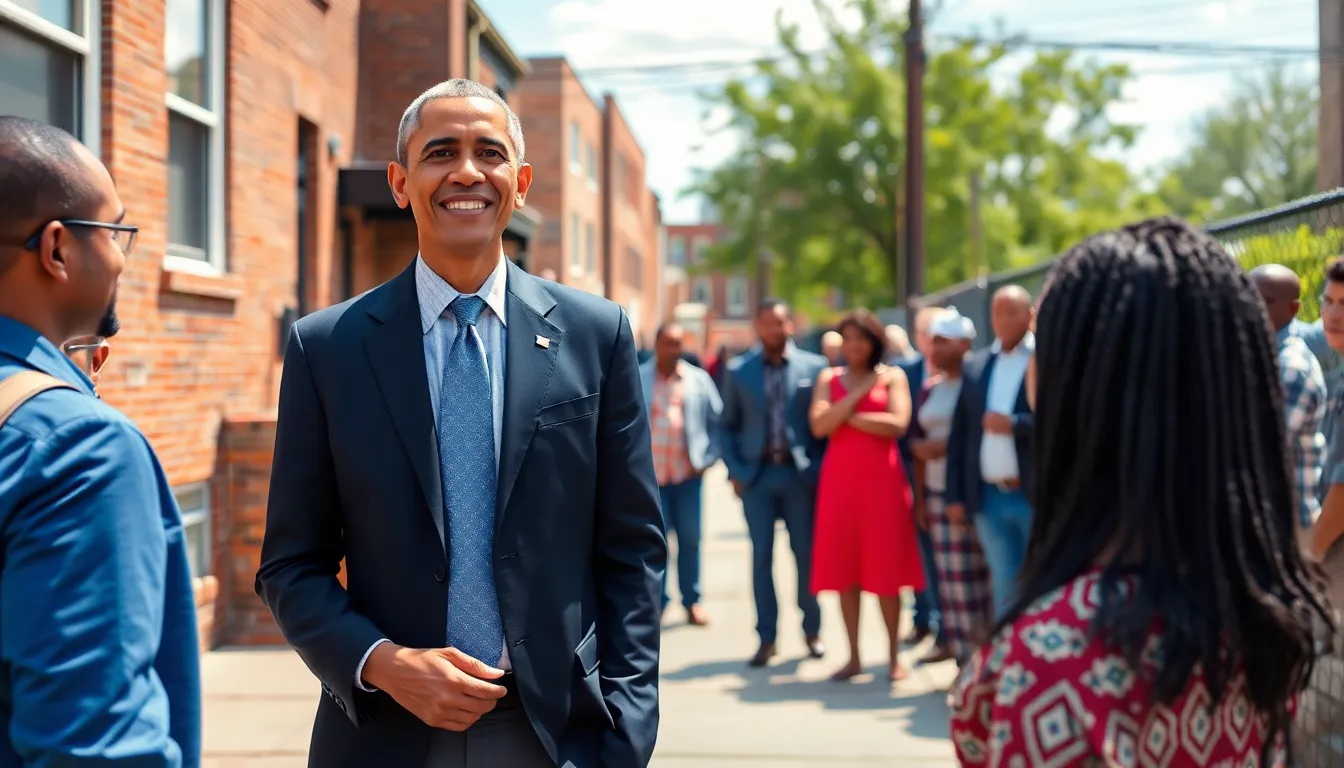Barack Obama, the man who once ruled the Oval Office, has a financial story that’s as fascinating as his political journey. From community organizer to President, he’s proven that dreams really can pay off—literally. But how did he go from giving speeches about hope and change to cashing in on book deals and Netflix contracts?
How Did Obama Make His Money
Barack Obama’s financial success stems from a variety of sources. Book deals played a significant role in his income, with two notable titles generating substantial earnings. “Dreams from My Father” and “A Promised Land” collectively brought in millions, reflecting his storytelling ability and appeal.
Beyond books, Obama secured lucrative contracts with Netflix. The partnership involved a multi-year agreement for content creation, further boosting his financial portfolio. This endeavor capitalizes on his popularity and experience as a public figure.
Public speaking engagements also contributed significantly to his income. High-profile speeches often commanded fees ranging from $100,000 to $400,000 per appearance. As a sought-after speaker, he shared insights on leadership, inspiration, and his presidency, connecting with diverse audiences.
Additionally, advisory roles in various organizations and foundations provided financial benefits. Collaborating with companies to share his expertise and guidance, he accessed a steady income stream. Investments in funds and real estate also added to his wealth, showcasing his financial acumen.
The combination of these revenue streams illustrates Obama’s transition from political leadership to a successful post-presidency career. Each opportunity leveraged his experience and public persona, enabling him to build a significant financial legacy.
Career Beginnings

Barack Obama’s career began in grassroots organizing and politics. His early experiences shaped his approach to public service and later financial success.
Community Organizer
In 1985, Obama moved to Chicago to work as a community organizer for the Gamaliel Foundation. He focused on issues impacting low-income neighborhoods, such as job training and housing. This role provided foundational skills in leadership and negotiation. It also connected him with local residents, enhancing his understanding of community challenges. While this position did not yield substantial income, it built his reputation and network, laying the groundwork for his political aspirations.
State Senator
Obama’s political career advanced in 1997 when he was elected to the Illinois State Senate. During his tenure, he championed significant legislation on healthcare and education. His ability to work across party lines garnered attention and made a mark in local politics. This role offered a salary of $40,000 annually, contributing to his financial stability. Advocacy for social justice initiatives further established his public profile. As a state senator, Obama aligned himself with issues resonating with constituents, which greatly aided his future endeavors.
Presidential Earnings
Barack Obama’s earnings as President and afterward illustrate his financial acumen and opportunities. His presidency not only provided a salary but also paved the way for lucrative deals post-White House.
Salary as President
During his eight years in office, Obama earned an annual salary of $400,000. This base salary, established by law for U.S. presidents, reflects the standard pay received by the nation’s highest officeholder. In addition, presidents are entitled to a $50,000 expense allowance to cover official duties. While the salary itself is substantial, the true financial benefits emerged after his presidency as he leveraged his name and legacy for further earnings.
Book Deals
Obama’s literary success includes major book deals that significantly contributed to his wealth. His memoir, “A Promised Land,” reportedly earned him a $65 million advance, alongside another $15 million for “Dreams from My Father.” Sales of both titles topped millions of copies, solidifying his status as a bestselling author. Deals with publishers highlight the appeal of his story and insights. These financial ventures not only showcase Obama’s writing talent but also emphasize his ability to connect with readers globally.
Post-Presidency Income
Barack Obama’s financial success accelerated after his presidency through multiple income streams.
Speaking Engagements
Public speaking became a significant revenue source for Obama. He commands fees between $100,000 and $400,000 for each engagement. High-profile events and corporate functions utilize his insights on leadership, governance, and social issues. Additionally, his popularity ensures a steady demand for his appearances. Engagements often draw considerable media attention, elevating both his brand and the event’s profile. With a compelling narrative, he shares his experiences that captivate diverse audiences, further increasing his appeal. The financial reward aligns well with the impact he has on audiences worldwide.
Media Deals
Obama’s media deals also represent a substantial part of his post-presidency income. He secured a lucrative multi-year contract with Netflix, reported at $50 million, for content creation. The partnership focuses on producing documentaries and series that resonate with his vision of societal change. Moreover, platforms such as Spotify feature podcasts showcasing various topics, expanding his reach. These media ventures amplify his voice while generating significant revenue. Adapting his influence to digital media allows him to connect with broader audiences. Creative projects reflect his insights, reinforcing his branding as a thought leader.
Investments and Other Ventures
Barack Obama’s financial portfolio expands through diverse investments and business opportunities beyond his political career.
Real Estate Investments
Obama’s real estate investments contribute significantly to his wealth. Acquisitions include high-value properties, with a notable residence located in Washington, D.C., purchased for $8.1 million. Another prime asset is his Chicago home, which he bought for $1.65 million. These properties appreciate over time, enhancing his overall financial position. Investing in real estate allows him to diversify his income streams while benefiting from tax advantages associated with property ownership.
Other Business Ventures
He has ventured into various businesses since leaving office. Media deals play a significant role in his income, particularly a multi-year partnership with Netflix valued at $50 million. This contract focuses on developing documentaries and other content that aligns with his vision. Additionally, he has interests in other enterprises, including advisory roles in investment firms. These positions leverage his expertise while generating substantial revenue. Collectively, these ventures reflect Obama’s acumen in exploring opportunities that align with his values and public presence.
Conclusion
Barack Obama’s financial journey illustrates a remarkable evolution from community organizer to a global icon. His diverse income streams reflect not only his political legacy but also his ability to connect with audiences through storytelling and leadership. With lucrative book deals media contracts and high-profile speaking engagements he’s crafted a financial portfolio that underscores his influence.
Investments in real estate and strategic business ventures further enhance his wealth showcasing a savvy approach to financial growth. As he continues to inspire others through various platforms his success serves as a testament to the power of leveraging one’s skills and experiences in the pursuit of financial independence.
